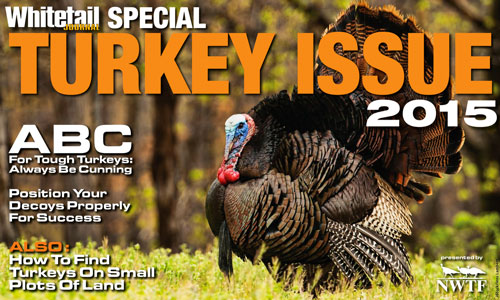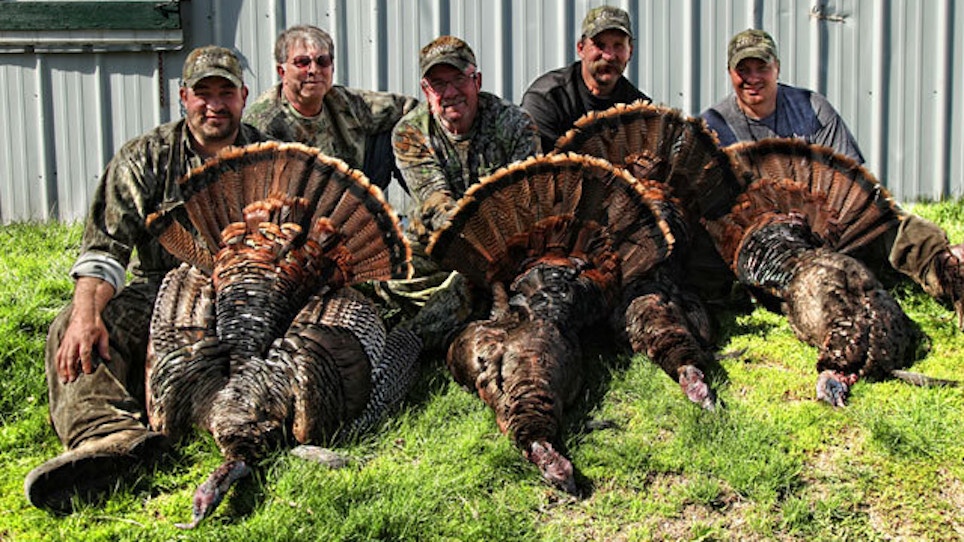Featured in Whitetail Journal's Special Digital Turkey Issue
Woods-Wise
Successful turkey hunters are typically excellent woodsmen. They know the lay of the land in their hunting areas, and they’re skilled at using terrain and foliage to move silently and unseen. They’re sharp of eye and are always listening for any clues turkeys might provide. And they can likely tell you all about the trees and understory plants in their neck of turkey country.
Know Thy Quarry
The best turkey hunters constantly observe turkeys and learn something from every encounter, even if it’s just a hen traipsing along a field edge. They usually watch birds before opening day, during various phases of the breeding season and even after the season is finished. They constantly scour their hunting areas for sign. They note how birds respond to various calling sequences, changing weather conditions and human hunting pressure. Often, they keep detailed hunting journals to record seemingly insignificant details that might help them during future hunts.
Complete Callers
Good turkey hunters can call — period. That doesn’t mean they have to be contest-caliber yelpers. However, they must have a detailed knowledge of the turkey’s vocabulary and be able to reproduce many calls realistically on multiple instruments: boxes, wingbones, trumpets, tube calls, mouth calls, scratch boxes, pot-and-peg calls and others. They always listen to other callers and especially real hens to improve their sound. And above all, they are confident about calling with any device at any time during a hunt. Further, they note how birds — hens and gobblers — respond to their calling and adjust accordingly.
Be Prepared
Skilled turkey hunters are always prepared for any scenario. Their camo doesn’t have to be new, but it must conceal them in the woods. Their shotguns must be in good working order, and they will have done extensive testing to determine the best chokes and loads for their effective shooting range. Their boots will be comfortable, their calls will be in tip-top shape and their licenses and tags will be in order. They might not like using decoys or pop-up blinds, but they always have them at the ready if the situation calls for it. And they go to great lengths to scout and identify good hunting areas and plans.
On The Fly
An offshoot of being prepared is being adaptable. Situations change quickly in the turkey woods, and the birds don’t always follow the rules. Don’t get stuck in a rut. If turkeys are frequenting fields, don’t stubbornly hunt in the woods. If they won’t gobble, don’t insist on walking and calling. If they’re henned up, hunt where hens want to go. If they’re talkative and actively seeking hens, don’t sit and wait for them. Read each situation as it unfolds, cobble together a solid game plan and act on it.
Final Note
Experience is probably the most important turkey hunting skill. Time spent in the woods interacting with the birds will teach you more than any book, video or magazine article. There is, however, only one way to acquire experience: Get in the woods, try your best, hone your skills and don’t be afraid to make mistakes. Every turkey hunter makes errors. The good ones learn from theirs and don’t repeat them. The slow, sometimes painful process of gaining experience will ultimately make you a turkey hunting grand master.






